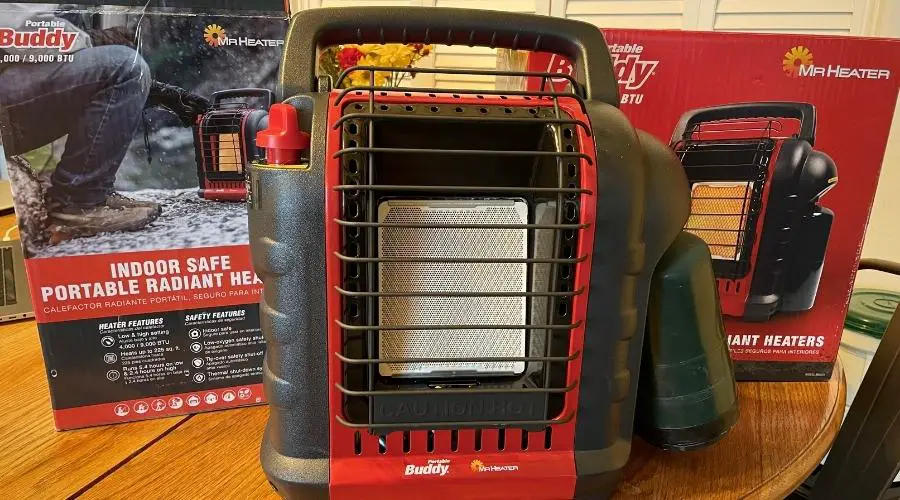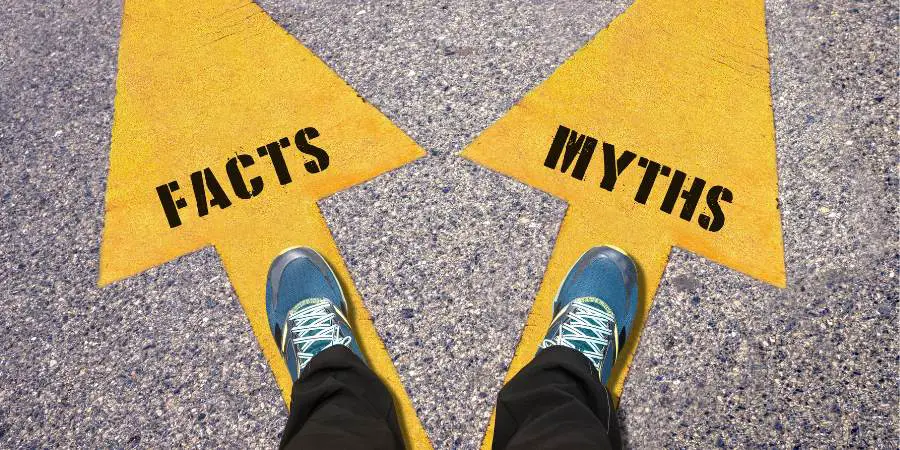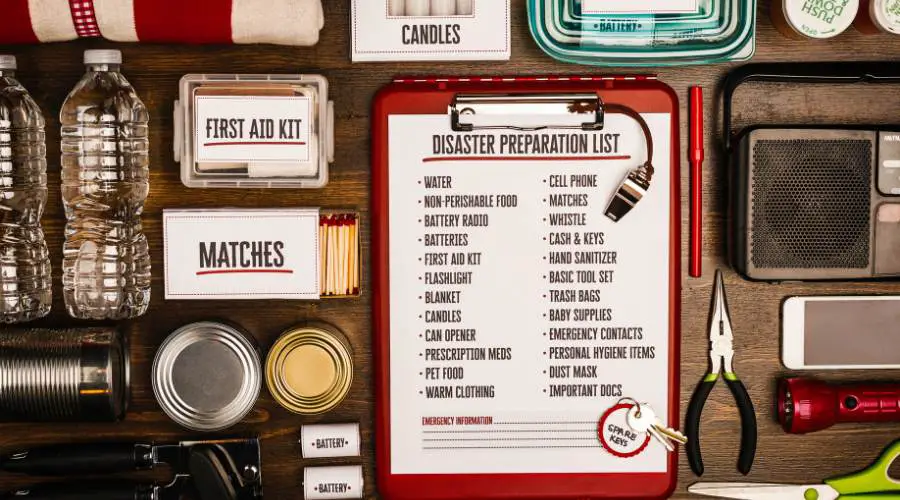Being prepared for unexpected situations is crucial for survival. Prepping, or the act of preparing for potential disasters has gained popularity in recent years due to increasing natural disasters, social unrest, and political instability. In this article, we will explore the benefits and challenges of being a prepper, how to start prepping, and myths and misconceptions about prepping.
So, is it worth being a prepper?
Being a prepper can be worth it by providing a sense of security and self-sufficiency, but it can also be expensive and time-consuming. Ultimately, the decision to become a prepper should be based on individual circumstances and needs.
Even if you decide that prepping is not for you, I’d strongly encourage anyone to build up a short term food supply and a few weeks worth of water. To know exactly how much food and water you should store, try our food storage calculator and also our water storage calculator.
Benefits of Being a Prepper
As a seasoned prepper, I can attest to the numerous benefits that come with being prepared for potential disasters. The following are some of the key benefits that I have experienced:
Increased Safety and Security
By having a well-stocked pantry, emergency supplies, and a plan in place, I have peace of mind knowing that I can take care of myself and my family in the event of a disaster. For example, when food and other shortages took place in my area I was prepared with a stocked pantry and other necessary goods (see how to prepare for food shortages). We remained safe and secure during times of stress and anxiety.
Reduced Stress and Anxiety
Knowing that I am prepared for potential disasters has significantly reduced my stress and anxiety levels. Instead of worrying about what would happen in an emergency, I am confident in my ability to handle the situation.
Enhanced Health and Wellness
Prepping has led me to focus on my health and wellness in a way that I never did before. By growing my own fruits and vegetables and learning about natural remedies, I have improved my overall health and wellness.

Cost Savings
Prepping has also led to cost savings for me. By purchasing supplies and equipment in bulk and taking advantage of sales and discounts, I have been able to save money while also ensuring that I have everything I need in case of an emergency. See how to be a prepper on a budget.
Fostered Self-Sufficiency
Prepping has taught me essential skills I can apply daily. For example, I have learned how to grow my own food, purify water, and provide basic medical care. These skills have made me more self-sufficient and have given me a sense of pride in my ability to take care of myself and my family.
Overall, the benefits of being a prepper are numerous and have had a significant impact on my life. By being prepared for potential disasters, I have increased my safety and security, reduced my stress and anxiety levels, enhanced my health and wellness, saved money, and become more self-sufficient. I encourage everyone to consider the benefits of prepping and to take steps to prepare themselves and their families for potential emergencies.
Personal Prepping Example
Last winter, a severe snowstorm hit my area, causing a power outage that lasted for over a day. While many of my neighbors were struggling to stay warm and cook food, I was well-prepared thanks to my prepping efforts.
I had a backup generator that I was able to use to power my heating system and keep my home warm. Additionally, I had a couple of indoor safe propane Buddy heaters that I used to keep different areas of my house at a reasonable temperature. See 13 emergency heating ideas that will keep your house warm.

When it came to cooking, I had a camping stove that I could use to prepare meals. I had also stored plenty of non-perishable food items such as canned goods, rice, and pasta, so I could create delicious and nutritious meals for myself and my family despite the power outage. See 10 indoor safe emergency cooking ideas that don’t need power.
Overall, I felt confident and prepared during the snowstorm thanks to my prepping efforts. It was a stark contrast to the stress and anxiety that many of my neighbors were experiencing. This experience reinforced for me the importance of being prepared for potential disasters and has motivated me to continue to hone my prepping skills and stockpile supplies for future emergencies.
Challenges of Being a Prepper
After years of experience, I can affirm that there are certainly challenges that come with being a prepper. While prepping can provide a sense of security and peace of mind, it’s important to recognize and prepare for the potential obstacles that may arise.
A few challenges that come along with being a prepper include:
- High Upfront Costs: Prepping can be expensive, especially when starting from scratch. Building a stockpile of essential supplies and equipment requires a significant upfront investment.
- Time and Effort Required: Prepping requires time and effort to research, plan, and execute. It is an ongoing process that requires maintenance and updates.
- Social Stigma and Isolation: Preppers may face social stigma and isolation due to the perception of being paranoid or extreme.
Time and Effort
One of the biggest challenges of being a prepper is the time and effort required to properly prepare. Stockpiling food, water, and supplies takes time and money, and it can take time and effort to find space to store everything. It’s also important to rotate your supplies to ensure that they stay fresh and usable, which can be a time-consuming task.
Social Stigma
Another challenge is the social stigma that can come with being a prepper. Many people view prepping as an extreme or paranoid behavior, which can lead to feelings of isolation or judgment from friends and family members. It’s important to find a community of like-minded individuals who share your values and beliefs to provide support and camaraderie.

Endless Education and Training
In addition, prepping requires a certain level of knowledge and skill. It’s important to know how to properly store and prepare food, purify water, and provide medical care in emergency situations. This requires ongoing education and training, which can be a challenge to fit into a busy schedule.
The Unknown
Finally, it’s important to recognize that prepping does not guarantee complete protection from all disasters or emergencies. While being prepared can increase your chances of survival and minimize the impact of a disaster, there are still inherent risks and unknown variables that must be taken into consideration.
Despite these challenges, I believe that the benefits of being a prepper outweigh the potential obstacles. By recognizing and preparing for these challenges, preppers can continue to improve their skills and maintain a sense of security and preparedness for whatever the future may hold.
Myths and Misconceptions about Prepping
I have encountered many myths and misconceptions surrounding the prepping lifestyle. While prepping is often associated with extreme behavior and doomsday scenarios, there are many misconceptions that can be dispelled with a little bit of education and understanding.
Myth 1: It’s Only for Conspiracy Theorists or Extremists
One of the biggest myths about prepping is that it is only for conspiracy theorists or extremists. In reality, prepping is a practical and common-sense approach to emergency preparedness that can benefit anyone. Whether it’s a natural disaster, power outage, or job loss, having the necessary supplies and skills to survive can make a significant difference in the outcome of a crisis.
Myth 2: It’s Expensive and Time-Consuming
Another common misconception about prepping is that it is an expensive and time-consuming endeavor. While prepping does require an investment of time and resources, it can be done on a budget and in a way that fits into your lifestyle. By starting small and focusing on the essentials, such as food, water, and basic medical supplies, prepping can be an affordable and manageable activity.
Myth 3: It’s All “Off Grid” and Disconnecting from Society
There is also a misconception that prepping is all about “going off the grid” and disconnecting from society. While some preppers may choose to live a self-sufficient lifestyle, many preppers are actively involved in their communities and seek to provide support and aid to others during times of crisis.
Myth 4: Preppers are Doomsday Fanatics
Finally, there is a myth that preppers are solely focused on preparing for catastrophic events such as a global pandemic or societal collapse. While these scenarios are certainly a concern for many preppers, the reality is that emergencies can happen at any time and in many different forms.
Preppers are focused on being prepared for any type of emergency, whether it’s a natural disaster, power outage, or personal crisis. Most preppers are not necessarily doomsday fanatics that only focus on the end of the world type catastrophes.

Overall, prepping is a practical and responsible approach to emergency preparedness that can benefit anyone. By dispelling the myths and misconceptions surrounding prepping, we can encourage more people to take the necessary steps to prepare for the unexpected and ensure the safety and well-being of themselves and their families.
How to Start Prepping
If you’re interested in prepping but don’t know where to start, don’t worry – everyone has to start somewhere. See our detailed guide on how to start prepping for beginners.
Here are some tips to get you started:
- Identify your needs and goals: The first step is to determine what you want to achieve with prepping. Are you preparing for a natural disaster, economic collapse, or something else? Once you have identified your needs and goals, you can start creating a plan.
- Assess your current resources: Take inventory of your current resources, such as food, water, and medical supplies. This will help you determine what you need to add to your stockpile.
- Start small: Prepping can be overwhelming, so start with small steps. Begin by storing extra food and water, and gradually build up your supplies as you become more comfortable.
- Learn basic skills: Prepping isn’t just about stockpiling supplies – it’s also about learning basic survival skills. Take a first aid course, learn how to start a fire without matches, and practice other essential skills.
- Join a community: Prepping can be a lonely activity, so it’s important to connect with others who share your interests. Join a local prepper group, attend events and classes, and participate in online forums to learn from others and share your own knowledge.
Remember, prepping is a marathon, not a sprint. It’s a lifestyle that requires dedication, hard work, and ongoing learning. But with the right mindset and approach, anyone can become a successful prepper.
Frequently Asked Questions (FAQs)
Q: What is the difference between prepping and hoarding?
A: Prepping involves acquiring essential supplies and skills to prepare for potential disasters. Hoarding, on the other hand, is the excessive accumulation of items that are not necessary for survival and can be a sign of a mental health disorder.
Q: How do I convince my family to start prepping?
A: Start small and focus on the benefits of prepping, such as increased safety and security. Involve your family in the planning and preparation process, and emphasize the importance of being prepared for unexpected situations.
Q: Can prepping help during natural disasters?
A: Yes, prepping can help during natural disasters by ensuring that you have the necessary supplies and skills to survive on your own, even if emergency services are overwhelmed or unavailable.
Q: What are the most important items to stockpile for survival?
A: The most important items to stockpile for survival include food, water, first aid supplies, self-defense equipment, and tools for communication and navigation.
Q: Can prepping lead to a sense of paranoia?
A: While prepping can be misconstrued as a sign of paranoia, it is simply a proactive way to prepare for potential disasters. It is important to maintain a balanced and realistic perspective on potential risks and to focus on preparedness rather than fear.
Conclusion
In conclusion, being a prepper has its pros and cons. Prepping can provide a sense of security and self-sufficiency, reduce stress and anxiety, and lead to cost savings and enhanced health and wellness. However, prepping can also be expensive, time-consuming, and isolating. Ultimately, the decision to become a prepper is a personal one that should be based on individual circumstances and needs. By taking the necessary steps to prepare for potential disasters, individuals can ensure their safety and security in uncertain times.

